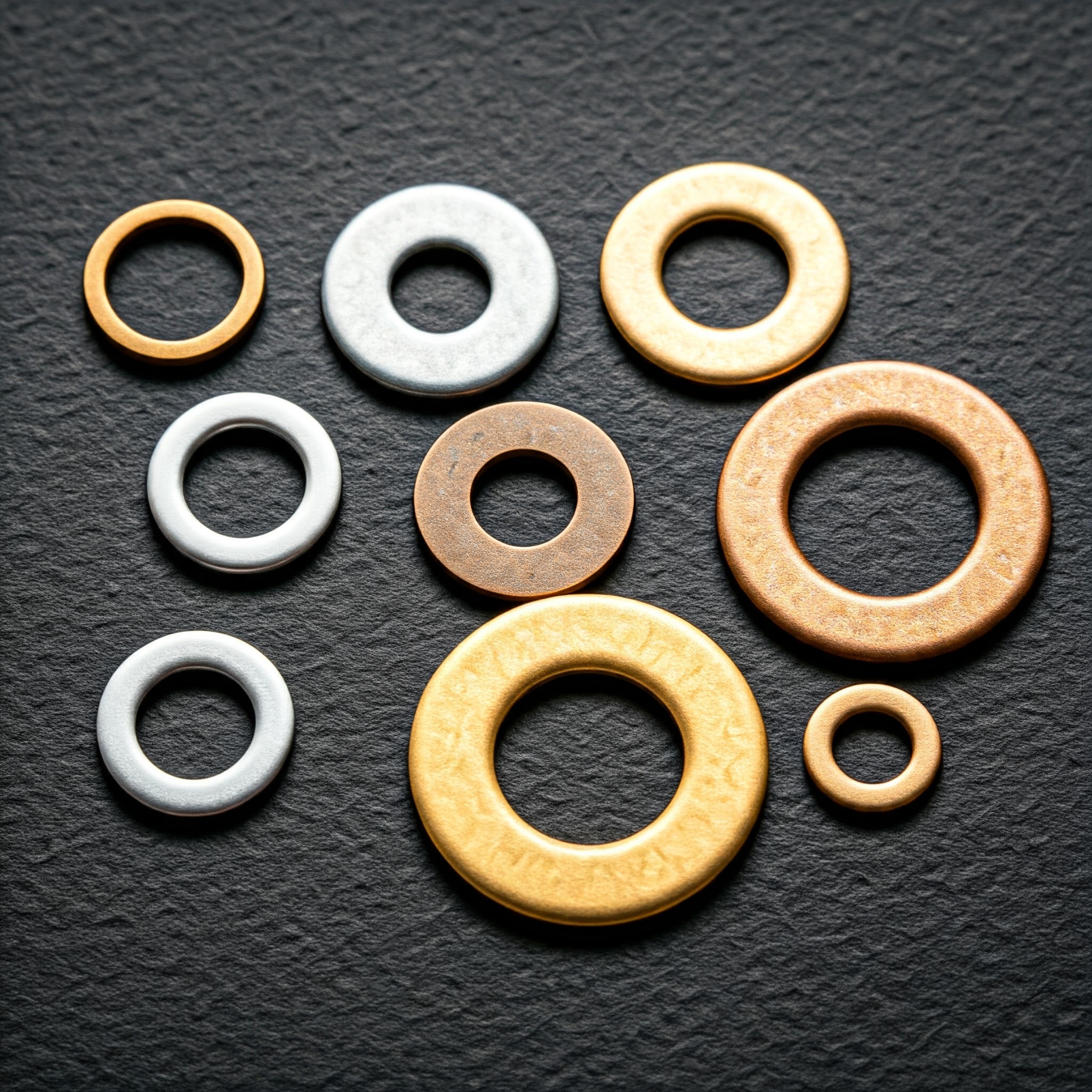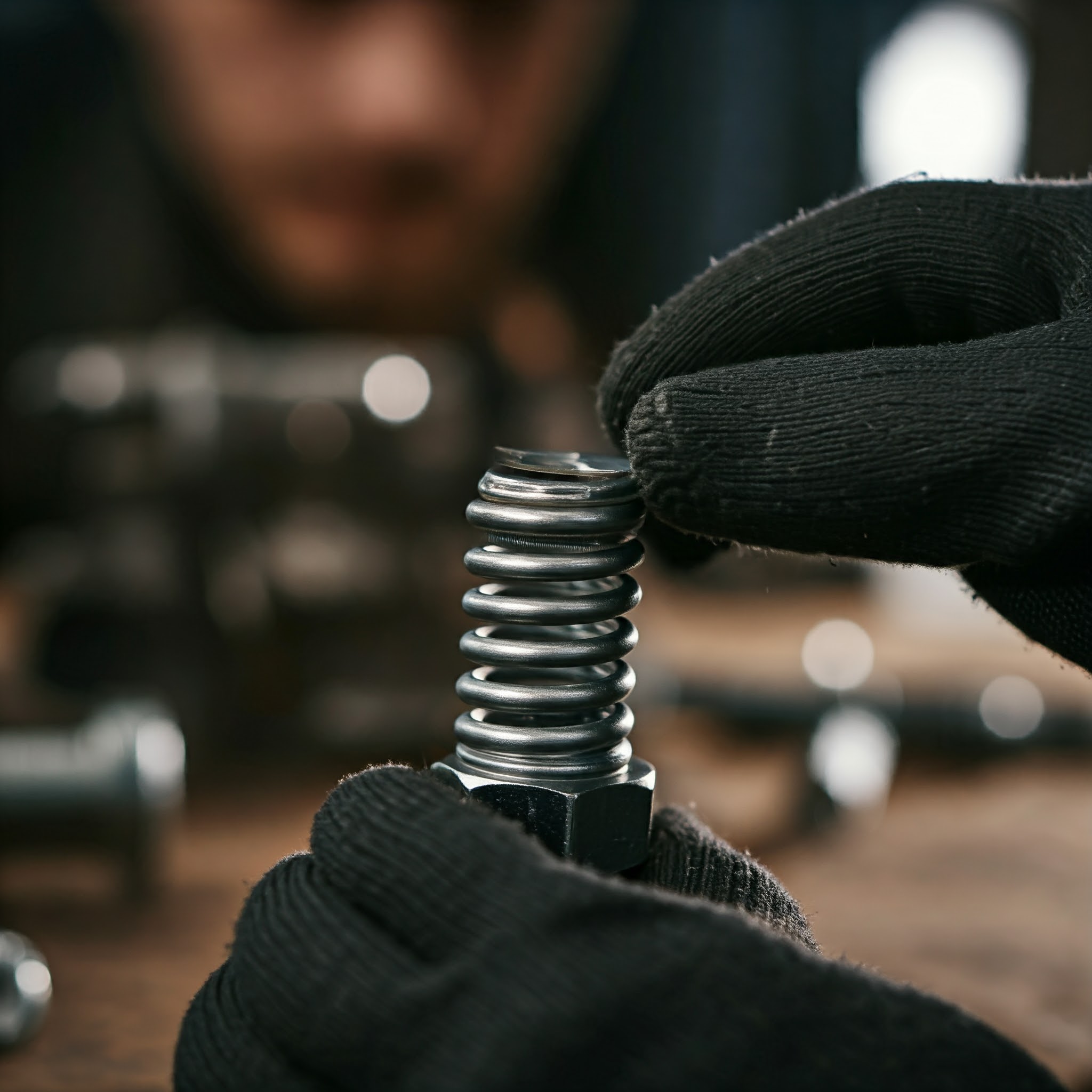What is the Function of Spring Washer? | Understanding Its Role

When I first started learning about mechanical components, I often encountered the term spring washer without fully grasping its significance. Today, I'm excited to delve into this essential fastening element and explain its function, importance, and applications in various industries. By the end of this article, you'll have a comprehensive understanding of what spring washers are and how they contribute to reliable mechanical assemblies.
Table of Contents:
- Introduction to Spring Washers
- How Spring Washers Work
- Key Functions of Spring Washers
- Types of Spring Washers
- Applications of Spring Washers
- Advantages of Using Spring Washers
- How to Choose the Right Spring Washer
- Conclusion
Introduction to Spring Washers
A spring washer is a type of washer that features a curved design, allowing it to provide a spring effect when compressed. Often made from materials like stainless steel or carbon steel, these washers are primarily used in mechanical assemblies to prevent loosening due to vibrations or movements.
Understanding the role of spring washers is crucial for anyone involved in engineering, manufacturing, or assembly processes. They may seem small, but their impact on the performance of mechanical systems is significant.
How Spring Washers Work
Spring washers work by exerting a force when compressed between a bolt and the surface it’s securing. Here's how they function:
- Compression: When you tighten a bolt, the spring washer compresses. This compression creates a preload that maintains the clamping force.
- Flexibility: The inherent elasticity of the washer allows it to absorb shocks and vibrations, which helps to maintain the integrity of the joint over time.
- Friction: By increasing friction between the fastened components, spring washers prevent them from loosening under dynamic loads.
This unique mechanism is what makes spring washer a popular choice in various applications, especially where vibration is a concern.

Key Functions of Spring Washers
Now that we understand how they work, let's explore the primary functions of spring washers:
- Preventing Loosening: The primary function of a spring washer is to prevent loosening of nuts and bolts due to vibration. This is especially important in machinery and automotive applications where movements can be substantial.
- Absorbing Shock and Vibration: By providing a cushioning effect, spring washer absorb shock and vibration, reducing the risk of damage to components and extending their lifespan.
- Maintaining Clamping Force: The preload created by a spring washer ensures that the clamping force remains consistent, which is vital for maintaining the integrity of mechanical assemblies.
- Compensating for Tolerance Gaps: In cases where there are slight misalignments or tolerance gaps, spring washers can help maintain a secure fit by compensating for these discrepancies.

Types of Spring Washers
There are several types of spring washer, each designed for specific applications. Here are some common ones:
- Regular Spring Washers: These are the standard type, used in general applications to prevent loosening.
- Conical Spring Washers: Shaped like a cone, these washers provide a stronger spring effect and are used in applications where higher loads are present.
- Locking Washers: These are designed with additional features to prevent loosening even under extreme conditions. They often have teeth that grip the surface they are mounted against.
- Wave Washers: These washers have a wave-like shape that provides flexibility and compensates for axial play in mechanical assemblies.
Each type of spring washer serves a unique purpose, so it's important to choose the right one for your specific application.
Applications of Spring Washers
Spring washers are utilized in a variety of industries and applications. Here are a few notable examples:
- Automotive Industry: In vehicles, spring washers are used in engine assemblies, suspension systems, and many other components to maintain tightness and safety.
- Aerospace: Due to the extreme conditions faced in aerospace applications, spring washers play a critical role in ensuring reliability and safety.
- Industrial Machinery: In heavy machinery, spring washer are used to secure bolts and nuts in environments that experience heavy vibrations.
- Electronics: Spring washers are commonly found in electronic devices to maintain connections and prevent loosening due to thermal expansion.
- Construction: Used in structural assemblies, spring washers help maintain the integrity of connections in buildings and infrastructure.
No matter the industry, understanding where and how to use spring washer can significantly enhance assembly performance.
Advantages of Using Spring Washers
Incorporating spring washer into your assemblies provides several benefits:
- Increased Reliability: By preventing loosening, spring washers enhance the reliability of mechanical systems.
- Cost-Effectiveness: Using spring washers can reduce the need for frequent maintenance and replacements, saving you time and money.
- Ease of Use: They are easy to install and adjust, allowing for quick assembly and disassembly.
- Improved Safety: By ensuring that connections remain tight, spring washers contribute to the overall safety of mechanical assemblies.
How to Choose the Right Spring Washer
Choosing the right spring washer is essential for achieving optimal performance. Here are some factors to consider:
- Material: Select a washer made from a material that suits your application’s environment. Stainless steel is excellent for corrosion resistance, while carbon steel is strong and cost-effective.
- Size: Ensure the spring washer fits the diameter of the bolt or fastener you are using. A proper fit is crucial for effective function.
- Load Rating: Consider the load that the spring washer will need to support. Always choose a washer with a sufficient load rating for your application.
- Type of Spring Washer: Depending on your assembly requirements, you might need a specific type, such as a conical washer or a locking washer.
If you're unsure, consult with a trusted washer manufacturer or supplier who can help guide you based on your specific needs. Additionally, look into reputable shim washer manufacturers if your assembly requires complementary components.

Conclusion
Spring washer are crucial components in mechanical assemblies that serve multiple functions, including preventing loosening, absorbing shocks, and maintaining clamping force. Their versatility makes them applicable across a wide range of industries, from automotive to aerospace and beyond.
Understanding the importance of spring washers will help you make informed decisions about their use in your projects. By selecting the right type and size, you can enhance the reliability and safety of your mechanical assemblies.
Whether you are a professional in the field or a DIY enthusiast, don't underestimate the power of a simple spring washer. Investing in quality washers can make all the difference in achieving optimal performance in your assemblies.
About Sachin Shim
Our range of shims includes metal, machine, industrial, precision, adjustable, machinery, engineering, custom, and alignment shims. These shims are designed for various applications, such as machinery alignment, fine adjustments in industrial-grade machines, engineering projects requiring steel shims, heavy-duty machinery requiring versatile metal shims, aerospace applications demanding precision stainless steel shims, automotive use requiring adjustable aluminum shims, precision engineering projects using high-quality brass shims, construction applications requiring durable plastic shims, specialized machinery needing customized shim solutions, and manufacturing processes requiring fine-tuning shims for precise alignment and accurate machine setup and leveling.
Author
Meet Seema, our expert author in industrial materials with a deep understanding of Bolts. With years of experience, Seema brings valuable insights and expertise to this guide, making them a trusted source for all things related to Bolts. Join us as we delve into the art of Bolts with Seema leading the way.
List Other similar blogs







